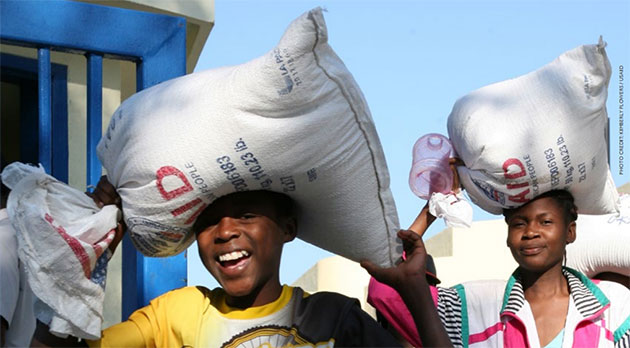
USAID Office of Food for Peace (FFP) development food assistance projects have ambitious goals—to address issues that cause hunger and malnutrition in vulnerable communities. To meet these goals, it is important for these projects to effectively monitor and evaluate their work to make sure that projects are on track, making progress, and having an impact. FFP has developed monitoring and evaluation (M&E) guidelines and policies to ensure a standard and robust approach to M&E across development food assistance projects. FANTA supports FFP at the project start-up phase to help familiarize new projects with FFP’s M&E approaches and requirements and to provide guidance with establishment of M&E systems.
Over the past year, FANTA and FFP jointly held workshops and technical assistance sessions in four countries—Burundi, Madagascar, Malawi, and Nepal—for the 7 organizations newly awarded FFP development food assistance projects in these countries, as well as for their partnering entities. The workshop topics included:
- FFP M&E and reporting requirements—FFP has M&E and reporting requirements at various project lifecycle stages (application, project start-up, annually, midterm, and at the end of the project). A soon to be released publication summarizes all FFP development project requirements (including integration of cross-cutting themes such as gender), while also providing guidance on M&E approaches and systems.
- M&E plan content—M&E plans describe all critical elements of a project’s M&E system and strategy. Each FFP development project must submit one at project start-up, including: a Theory of Change; LogFrame; Indicator Performance Tracking Table (IPTT); Performance Indicator Reference Sheets (PIRS) for each IPTT indicator; annual monitoring plan; M&E staffing and capacity building strategy; and plans for baseline studies, and midterm and final evaluations. Considering each of these elements early in the project lifecycle is likely to result in M&E systems better able to improve performance, capture results, and help projects achieve their goals.
- LogFrame development—the LogFrame presents inputs, outputs, and outcomes that contribute to the project’s purpose and goal, along with indicators to measure these components. Along with the project’s Theory of Change, the LogFrame lays the foundation for the project’s M&E system.
- IIPTT development—IPTTs present the full suite of indicators that projects will report to FFP, including FFP and Mission-required indicators and project custom indicators. IPTTs contains both baseline/final evaluation and annual monitoring indicators.
- Integration of gender into monitoring and evaluation systems—gender must be integrated into projects and project M&E systems. For example, project design must consider how activities would affect the status of women and men in terms of time and health, while M&E systems must incorporate measures of gender outcomes.
After the workshops, FANTA worked with the organizations to apply workshop principles in refining key project M&E foundational documents—the Theory of Change, LogFrame, and IPTT. Jointly with FFP, FANTA provided direct technical assistance to each organization to strengthen these three documents, which form the basis for project M&E systems. Establishing a sound M&E system at project outset is critical to ensure that the project will achieve its goals. By partnering with FFP to provide in-depth M&E support and guidance at project start-up, FANTA helps strengthen FFP project implementation and management.


